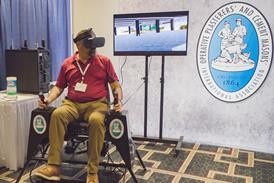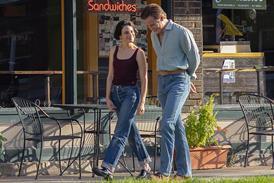Dir: Luciano Ligabue. Italy, 2002. 100mins.
Italian rockstar Luciano Ligabue rather showed up the country's army of under- achieving full-time directors when his first film, Radiofreccia, turned out to be both a critical and a commercial success. But hubris - at least on the critical front - has not been long in coming. Although visually inventive, From Nought to Ten fails to gel, marred as it is by a weak script and an inflated sense of its own capacity to amuse. However, in commercial terms at least, this story of thirtysomethings on a nostalgia trip to an Adriatic beach resort has confirmed the hairy rocker's pulling power. After its fourth week of release, it has taken 2,780,000 Euros from 51 screens, just 600,000 Euros shy of the total notched up in 1998 by Radiofreccia. Ligabue, though, is an almost exclusively Italian phenomenon; this, and the new film's culturally confined horizons, will limit its chances abroad.
From Nought to Ten is, on paper, an Italian The Big Chill; but it suffers from the comparison. Four friends from the director's hometown of Correggio (where his first film was set) decide to finish off a seaside weekend that was interrupted 20 years before for reasons that are not immediately obvious. They head down to Rimini, Italy's sun, sex and sand capital, to meet up with the girls they had been hanging out with all those years ago. One of the four is gay, one a bragging hetero stud, one a regular guy with a secret guitar habit and one a soulful moper who cannot get the fifth member of their teenage gang out of his head: the reason the party split up in the summer of 1980 is because this absent friend was torn apart in the Bologna station bombing while on his way to join the others.
Dazeroadieci - written closed up, like the difficult-to-read credits - refers to the marks given in the Italian school system. These are used by the characters to evaluate anything and everything: their lives up to now, their ability to take charge of their fate etc. But the number button is pushed so insistently that it becomes annoying - even more so than Amelie's do like/don't like gradings.
In their dramatic sluggishness, the beach-and-disco scenes are a bit like the early, Californian scenes in Blow, with ice-cream replacing the cocaine. The eight main characters are never quite interesting enough, the dialogue never quite funny or profound enough. With the exception of poor lighting in some of the interiors, the film has a good visual sense, and there is some stylish quick-cut montage.
But there is also a persistent sense of a film that is too ambitious for its own budget: especially in one of the final scenes, set on an illegal racetrack, where we see more of the scoreboard than we do of the car. Also, it is odd that Ligabue's music is not made more of, given that one of the selling points of Radiofreccia was the singing director's own tie-in album. The spin-off single gets a show-stopping musical sequence, but elsewhere the director favours a schmaltzy string-based air that's more suited to a BBC costume drama. Still, Ligabue remains a useful director, and if only in commercial terms, his new film confirms producer Domenico Procacci's hunch in tempting him behind the lens.
Prod co: Fandango
It dist: Medusa
Int'l sales: Medusa Film
Prod: Domenico Procacci
Scr: Ligabue
Cinematography: Gherardo Gossi
Prod des: Leonardo Scarpa
Ed: Angelo Nicolini
Music: Ligabue
Main cast: Massimo Bellinzoni, Pierfrancesco Favino, Elisabetta Cavallotti, Barbara Lerici, Stefania Rivi, Stefano Pesce, Stefano Venturi, Fabrizia Sacchi

















No comments yet